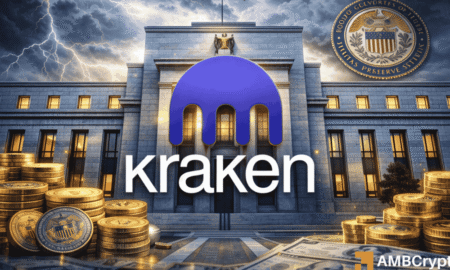The Delay of Fidelity’s SOL ETF: What to Expect Next
The anticipated approval of Fidelity’s spot Solana (SOL) ETF has faced delays as the U.S. Securities and Exchange Commission (SEC) seeks to establish a comprehensive framework for cryptocurrency exchange-traded funds (ETFs). This wait for regulatory clarity has heightened concerns among market analysts about the timing of altcoin ETF approvals, now potentially extending into the fourth quarter of the year.
On July 7, the SEC acknowledged Fidelity’s filing for a spot SOL ETF, marking a pivotal moment for the crypto market. However, the agency is currently in a comment and rebuttal phase under the Commodity-Based Trust Shares structure. While investors were hopeful for early approvals initially anticipated during the summer, the SEC’s recent stance indicates that significant delays could be on the horizon for other altcoin ETFs as well.
James Seyffart, a senior ETF analyst from Bloomberg, commented on July 7 that the hold-up was expected due to the SEC’s ongoing efforts to build a digital asset exchange-traded product (ETP) framework. He highlighted that market participants are eagerly awaiting movement from the SEC on this strategy, which is crucial to resolving the ongoing uncertainties surrounding altcoin ETF approvals.
As per Seyffart’s analysis, the SEC requested issuers to refile their updated applications by the end of July. While he still considers Q3 approval a possibility, he warns that implementing the new framework could push many approvals into Q4. In line with this, Nate Geraci of ETFStore echoed similar sentiments, noting that certain issuers do not anticipate the guidelines to be fully functional until early fall. As a result, it appears unlikely that any spot crypto ETFs will receive approval until the framework is established.
Notably, this new regulatory framework is expected to necessitate additional disclosure requirements for issuers. A case in point is the recent decision to pause the conversion of the Grayscale multi-crypto index fund into an ETF until these protocols are in place. It’s important to understand that these spot applications differ significantly from those already in operation, such as the REX-Osprey SOL ETF staking, which operates under the Investment Company Act of 1940 and was approved earlier.
In the realm of altcoins, multiple ETFs are currently up for consideration. Most prominently, filings for Litecoin (LTC), SOL, Ripple (XRP), Dogecoin (DOGE), and Cardano (ADA) all have an SEC decision deadline approaching in October. Analysts suggest that if approvals do begin to roll out, they might happen concurrently for several altcoin ETFs, which could create significant momentum in the market.
The market reaction to the ETF delay has been palpable, with the price of SOL declining from $154 to $147 following the SEC update. Options data indicates a range-bound trading environment for the cryptocurrency, with significant volumes of bullish bets centered around the $152, $154, and $160 price points. Meanwhile, bearish bets are located at lower thresholds, indicating that traders expect SOL’s price to remain within the $140 to $160 range in the near term.
In conclusion, the SEC’s delay in approving Fidelity’s SOL ETF raises important questions about the future of altcoin ETFs. While many market participants remain hopeful for approvals in Q3, the establishment of a comprehensive digital asset framework is vital before any significant announcements can be made. Keeping an eye on the SEC’s upcoming decisions, as well as the market’s reactions, will be critical for investors looking to navigate this evolving landscape of cryptocurrency investment vehicles.
















